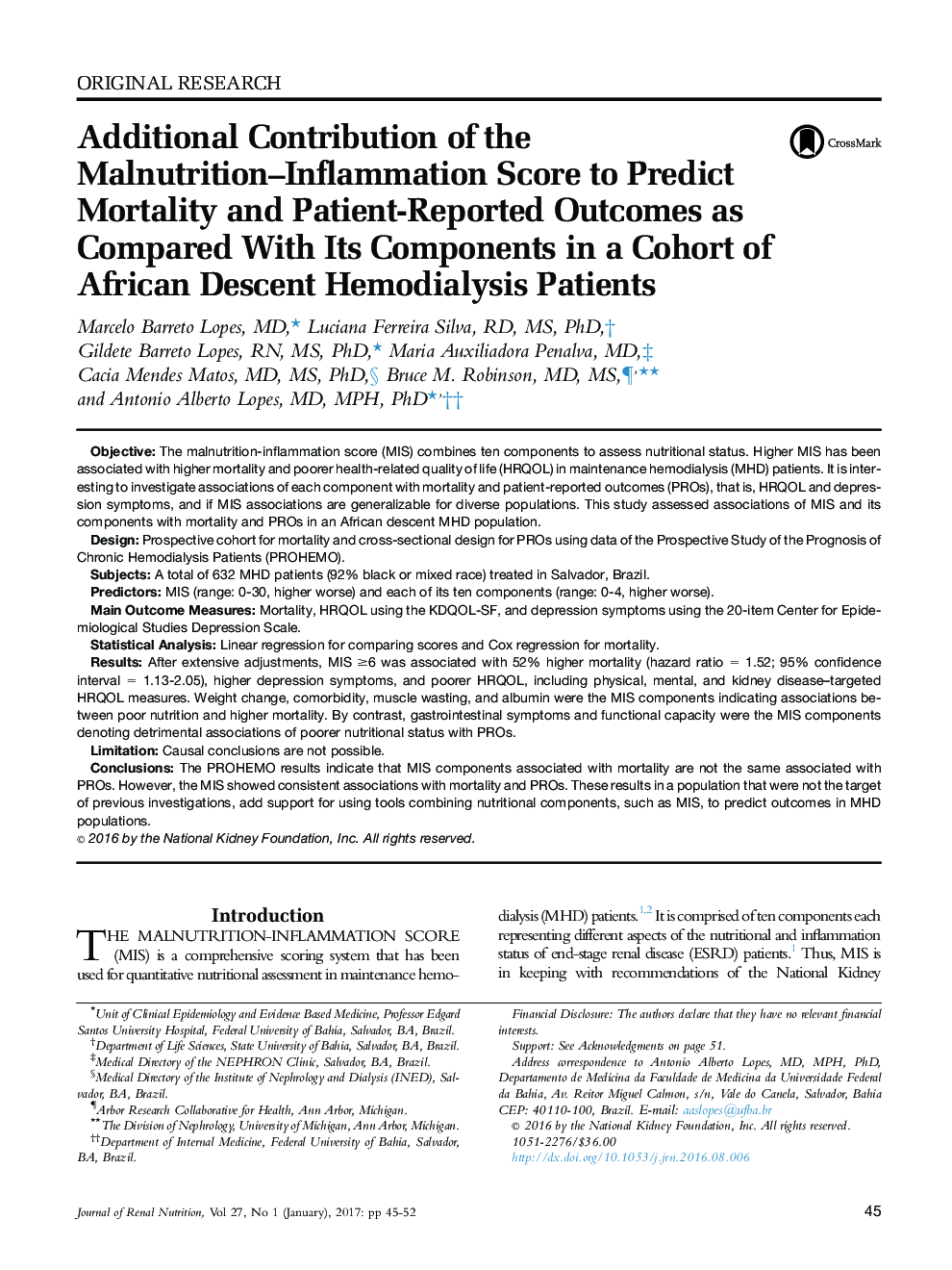| Article ID | Journal | Published Year | Pages | File Type |
|---|---|---|---|---|
| 5686025 | Journal of Renal Nutrition | 2017 | 8 Pages |
ObjectiveThe malnutrition-inflammation score (MIS) combines ten components to assess nutritional status. Higher MIS has been associated with higher mortality and poorer health-related quality of life (HRQOL) in maintenance hemodialysis (MHD) patients. It is interesting to investigate associations of each component with mortality and patient-reported outcomes (PROs), that is, HRQOL and depression symptoms, and if MIS associations are generalizable for diverse populations. This study assessed associations of MIS and its components with mortality and PROs in an African descent MHD population.DesignProspective cohort for mortality and cross-sectional design for PROs using data of the Prospective Study of the Prognosis of Chronic Hemodialysis Patients (PROHEMO).SubjectsA total of 632 MHD patients (92% black or mixed race) treated in Salvador, Brazil.PredictorsMIS (range: 0-30, higher worse) and each of its ten components (range: 0-4, higher worse).Main Outcome MeasuresMortality, HRQOL using the KDQOL-SF, and depression symptoms using the 20-item Center for Epidemiological Studies Depression Scale.Statistical AnalysisLinear regression for comparing scores and Cox regression for mortality.ResultsAfter extensive adjustments, MIS â¥6 was associated with 52% higher mortality (hazard ratio = 1.52; 95% confidence interval = 1.13-2.05), higher depression symptoms, and poorer HRQOL, including physical, mental, and kidney disease-targeted HRQOL measures. Weight change, comorbidity, muscle wasting, and albumin were the MIS components indicating associations between poor nutrition and higher mortality. By contrast, gastrointestinal symptoms and functional capacity were the MIS components denoting detrimental associations of poorer nutritional status with PROs.LimitationCausal conclusions are not possible.ConclusionsThe PROHEMO results indicate that MIS components associated with mortality are not the same associated with PROs. However, the MIS showed consistent associations with mortality and PROs. These results in a population that were not the target of previous investigations, add support for using tools combining nutritional components, such as MIS, to predict outcomes in MHD populations.
